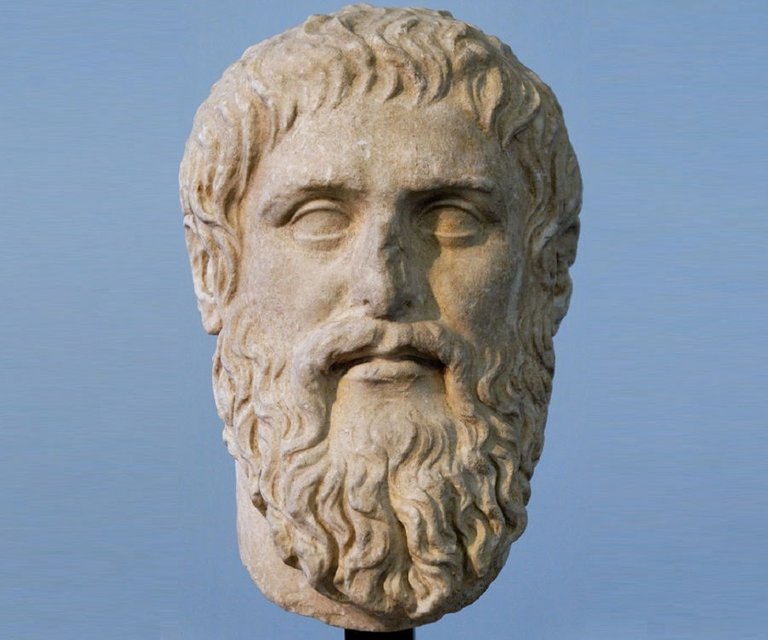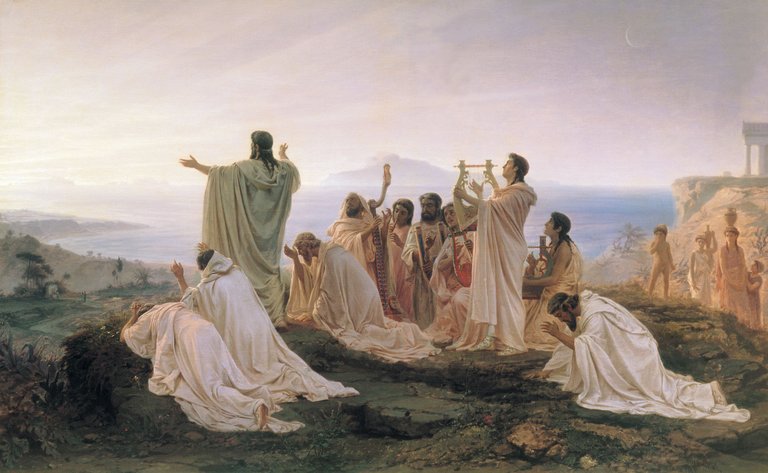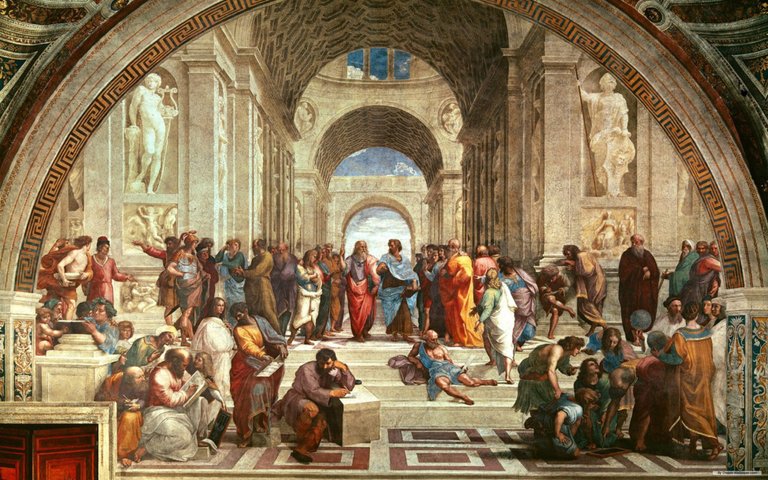
Born in 427 B.C. Plato, actually named Aristocles, was a student of Socrates who came from a wealthy family, as did most of the other students. These aristocrats were interested in his ideas of how democracy was a bad form of government because they were interested in reintroducing an aristocracy, so this was highly beneficial. While known for being a philosopher, Plato was also a soldier, wrestler, and politician. Before Socrates died, he gave up on Athens and actually left. He was disgusted with Athens and democracy because people were making decisions based on what was best for themselves.
He traveled for a while and became disposed to an "abstract method" of asking questions and retrieving the answers from yourself. In Italy he discovered Pythagorean communities that dabbled in abstract thought. Pythagoras himself even believed the soul was rational and responsible for its actions. Plato came to believe in the "theory of ideal forms". He stated that there are things we can not touch or taste but still exist, and whatever "thing" exists here, is an imperfect reflection of that perfect "thing" that exists in the universe. He also believed that it would take an innate philosopher to study all their life to understand this theory.

Plato's The Republic
Eventually Plato took all these ideas of ideal forms and applied it to politics. In the Republic existed utopic communities made up of like-minded people. These Republics were based on reason alone, and anything that created emotion could not exist, such as art, music, and love. Sex was only for procreation and children were raised by the whole community, or else you would risk forming an emotional connection.
Both male and female children were going to be raised to contemplate and think abstractly. Special children with a knack for it would be segregated from the rest and taught philosophy. Once trained in the subject, by age 30 they will begin to see these ideal forms. By age 50 they have a complete understanding of these forms and become the philosopher kings.
The Academy
In 387 B.C. Plato returned to Athens and formed The Academy. A school which was situated outside the city walls, it did not charge students to attend, unlike schools within the city. Sometimes women even attended since they were legally forbidden from seeking higher education. It focused on math, reason, logic, and training the future leaders of Athens, and is known for propagating the heliocentric universe. This school existed way up until the 500's A.D. and where it was almost shut down completely in 70 B.C.

I like your post. I try to send your post in @curie I hope can you receive a good upvote
Thank you!
amazing, i like it,
Great content. I was a phil major myself so enjoy seeing this type of post. Following you.